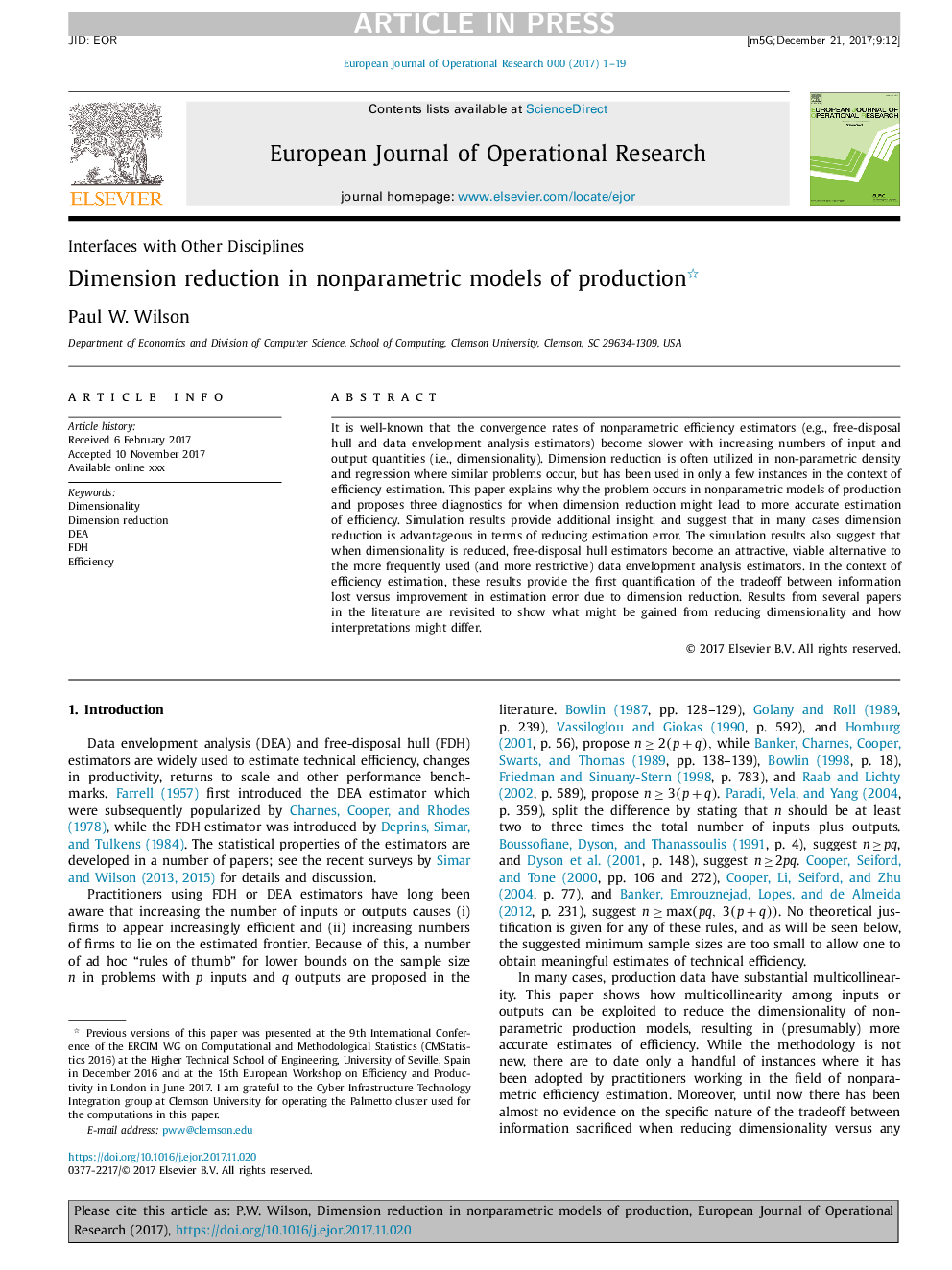| Article ID | Journal | Published Year | Pages | File Type |
|---|---|---|---|---|
| 6895082 | European Journal of Operational Research | 2018 | 19 Pages |
Abstract
It is well-known that the convergence rates of nonparametric efficiency estimators (e.g., free-disposal hull and data envelopment analysis estimators) become slower with increasing numbers of input and output quantities (i.e., dimensionality). Dimension reduction is often utilized in non-parametric density and regression where similar problems occur, but has been used in only a few instances in the context of efficiency estimation. This paper explains why the problem occurs in nonparametric models of production and proposes three diagnostics for when dimension reduction might lead to more accurate estimation of efficiency. Simulation results provide additional insight, and suggest that in many cases dimension reduction is advantageous in terms of reducing estimation error. The simulation results also suggest that when dimensionality is reduced, free-disposal hull estimators become an attractive, viable alternative to the more frequently used (and more restrictive) data envelopment analysis estimators. In the context of efficiency estimation, these results provide the first quantification of the tradeoff between information lost versus improvement in estimation error due to dimension reduction. Results from several papers in the literature are revisited to show what might be gained from reducing dimensionality and how interpretations might differ.
Related Topics
Physical Sciences and Engineering
Computer Science
Computer Science (General)
Authors
Paul W. Wilson,
